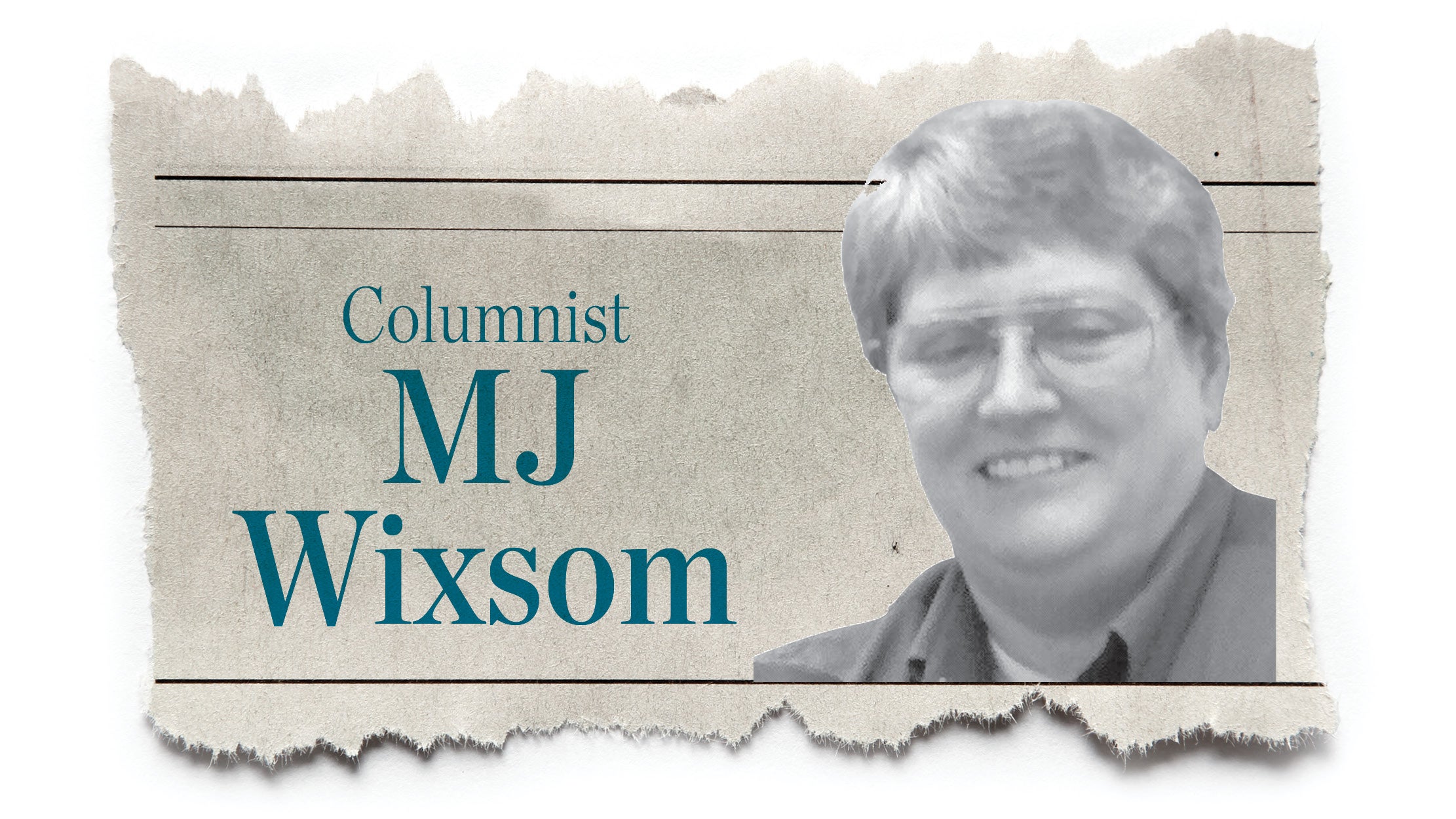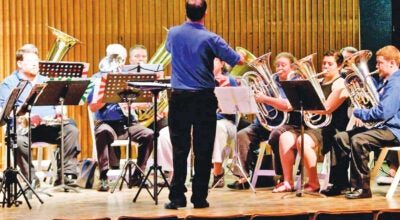PROFILE: By the light of the moon
Published 12:21 pm Wednesday, March 10, 2010
GALLIPOLIS — The thrill of the chase grabbed up Jim Saunders as fast as you can say sour mash. Up on the silver screen, Robert Mitchum tinkered with his ’51 Ford hot rod, outsmarting those blasted alcohol tax agents in “Thunder Road,” the classic 1958 drive-in flick about running white lightning through the Kentucky and Tennessee hollows.
Customized tank riding low in the back of the souped-up moonshine machine, the Gallipolis city police officer wondered if he’d ever run across a rascal like that.
Leaving the theater, restlessness fermented. He’d love a backwoods highway. He signed on with the ATF, soon headed to Virginia to run down the moonshine haulers.
Moonshine capital of the world
Fresh out of the academy, the Gallipolis native arrived on the Blue Ridge scene, rolling into town in his flashy 1957 Ford, two smoking 4-barrel carburetors ready to run.
Assigned to Franklin County, Va., his plate was full, busting illegal whiskey-making in the breakneck “Moonshine Capital of the World.”
The rookie was thrown straight into the kettle.
“It was me against the moonshiners,” laughed the now-80-year-old from his Gallipolis home. “They knew the woods better than I did. I learned to be a good tracker.”
With a little help from informants — many of whom were the bootlegger own competitors — he’d head into the bushy mountainsides to hunt down the still. Sniffing around, he’d find the corn and sugar-filled drum, take a whiff, stir it up with his finger and have a nip, just to see intilthe moonshiners returned to run off the booze.
Usually, about three days later, they’d comeback to set the hooch in motion, placing it in a copper vat to heat up, butane underneath. Saunders hunkered behind a tree waiting for the moonshiners to show. He’d hideout there, living on a few saltines, keeping an eye out.
They’d do a little work around the still, maybe add some yeast, and he’d sneak up. Most of the time, they went peacefully, stills smashed to smithereens.
“I treated ‘em right,” Saunders said. “They wanted to be caught fair and square. But, one thing they didn’t like was an undercover to buy from them. It just wasn’t the right way.”
Saunders says many a mountain man called him a “revenuer.”
“They called us a lot of nasty names too,” he chuckled.
There were small-time kinfolk bootleg operations but also links to organized crime. In one investigation some 50-years-ago, Saunders found a 500-gallon still with more than 40 mash boxes at the ready.
There were crazy nights around 3 a.m. when the fast-driving, stock car runners headed out. Haulers put heavy springs on their cars so — empty or full of liquor — their cars appeared level.
Hiding in the weeds, he’d spot the car’s bounce by the flickering headlights. Sometimes it turned into a burnt rubber chase with the bootlegger outrunning the lawman.
“They were really good drivers and would pass on blind curves. They’d take risks and try things we just wouldn’t,” owned up Saunders, adding he often drove 135 miles per hour.
But he had a dubious distinction among fellow federal agents. He honed the infamous “bootleg turn,” locking up his emergency brake and back tires, turning the steering wheel sharply, and skidding his car around into a 180-degree turn — just like the bootleggers.
“It’s a good trick.”
Saunders was a little awed by the runners’ pride in their cars. One time he asked to see an engine block.
“He told me it was just stock. When I opened that hood I couldn’t believe it. It was so clean you could eat off it.”
All in all, his career arresting more than 500 moonshiners and bootleggers was quite like “Thunder Road,” except …
“It was much, much wilder.”
In time, he was assigned to Hazard, Ky. — where the Appalachian family biz is sacred and they don’t mind fighting for it.
“I saw a shot hit the ground about 10-feet in front of me. They’d shoot to scare us off. In Breathitt County, every moonshiner had a gun,” he went on. “I got used to it. It was my job and most of them respected me for my job.”
Worthy of note, he has lots of tales to share with his wife, Louise, seven children; grandchildren, and great-grandchildren.
As an agent, he not only hunted bootleggers, he lent a hand to the Secret Service after the President John F. Kennedy assassination and during four different presidential visits.
“Guess I had an interesting life,” he paused. “It definitely was a big challenge.”
Taxman in town
Sharp-witted Tim Farrar is enjoying retired life in Tallahassee. But that doesn’t mean the crazy days down in Meridian, Miss. don’t come to mind.
Farrar’s last ATF assignment brought him to the Ashland office as resident agent in charge. He enlisted as a revenue agent in 1969, sent to Mississippi with a hot Dodge hemi — the original.
“It was bad,” he spoke of his high performance muscle car with a laugh.
Specially trained to drive the highway hulk, he’d sit on the road’s berm, watching for liquor haulers.
“They were so loaded down with whiskey their rear ends dragged the ground.”
The local moonshiner might have a day job, a run of the mill fellow, Farrar said.
“They looked like regular people,” he said. “Well thought of in their neighborhoods.”
Charming too. Even calling Farrar’s house, chitchatting with the agent’s wife.
His cases run the gamut from the old fellow in bib overalls carrying a few Mason jars up the knoll, all the way to semi tractor trailers loaded to the brim with 1-gallon plastic jugs.
Once, Farrar and a few other officers were dropped off at a farm, peeled for moonshine around the Carter County farms he frequented.
Flying a marijuana eradication detail, he noticed an orange garden hose strung out to the pot field.
“I looked over at that National Guard pilot and said, ‘Why in the world is that there?’”
He followed its path into a cave, still hidden under a rocky overhang.
Now 68, he relayed a few tales while teaching at the Dept. of Criminal Justice Training in Richmond. He knows many of their young police officers may never see moonshine.
Living out in Boyd County, Jude squirreled away 159 gallons of moonshine troopers ransacked in a search.
“Post had no room to store it,” sniggered the 43-year law enforcement veteran who worked both the JFK and Robert F. Kennedy funeral details as a Washington, D.C. cop.
“Well, when they ordered me to pour it out, I went out and dumped it in the yard,” Jude stopped. “It didn’t make the grass real green.”
Losing its shine
Authorities figure there will always be a father and son out back of the barn cooking up a batch of moonshine. Still, nowadays, it seems like a dying country custom.
“Moonshining lost its luster back in the 70s,” inserted 23-year ATF veteran Bernard Teyssier, the resident agent in charge of downtown Ashland’s field office that’s in charge of 17 Commonwealth counties, along with Cabell and Wayne counties in West Virginia.
“As an agency, it’s still part of our jurisdiction, but we only investigate it on an interstate scale,” he went on. “It’s just sort of a thing of the past.”
In all his years, Teyssier only dealt with bootlegging marginally.
He recalls working a Martinsburg, Va., case. Runners were carting moonshine to Philly taverns where bartenders were “cutting” drinks — mixing shine with top shelf liquors to save a few bucks.
The investigation ended abruptly, as the liquor transporter was killed in a fatal truck wreck on the road to Pennsylvania.
Greenup County Sheriff Keith Cooper keeps alcohol out of kids’ hands, making sly buys, paying a visit to local bootleggers on Prom nights. Staggering, some of the shacks and outbuildings even have fridges and walk-in coolers so the beer’s chilled for customers.
A former KSP trooper, he worked undercover, closing down a few stills in his days.
In spite of that, there isn’t enough money in it now. Folks would rather deal drugs than cook whiskey, Cooper said.
“Sure, it’s still around. It’s part of Kentucky heritage,” Cooper wrapped up. “But it’s just stories I’ll tell my grandkids someday. A little piece of history.”




